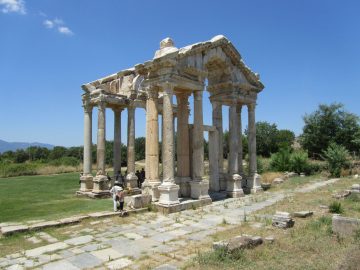Today Show – NBC
 “The Today Show” is a popular American morning television news and talk show that has been airing on NBC since January 14, 1952. It is one of the longest-running and most iconic morning shows in the United States. The show typically features a mix of news, weather, feature stories, celebrity interviews, and live musical performances. Over the years, “The Today Show” has undergone various format changes and has been hosted by several well-known personalities.
“The Today Show” is a popular American morning television news and talk show that has been airing on NBC since January 14, 1952. It is one of the longest-running and most iconic morning shows in the United States. The show typically features a mix of news, weather, feature stories, celebrity interviews, and live musical performances. Over the years, “The Today Show” has undergone various format changes and has been hosted by several well-known personalities.
One of the most notable hosts of “The Today Show ↗” was Matt Lauer. Matt Lauer co-hosted the show from 1997 until his departure in 2017. During his tenure, he became a household name and one of the most recognizable figures in American television journalism. Lauer’s on-air chemistry with his co-hosts, including Katie Couric and Meredith Vieira, contributed to the show’s success during his time there.
Introduction of Turkey in this episode of The Today Show broadcast on NBC.
Introduction of Turkey
The introduction of Turkey is an important aspect when discussing the country’s history, culture, and global significance. Here are some key points regarding the importance of introducing Turkey:
- Geopolitical Significance: Turkey is a transcontinental country, straddling both Europe and Asia, and it serves as a bridge between these two continents. Its location at the crossroads of Europe and Asia has made it a historically important center for trade, diplomacy, and cultural exchange.
- Historical Heritage: Turkey is home to a rich historical and cultural heritage. It was the center of the Byzantine and Ottoman Empires, which had a profound influence on the development of art, architecture, and governance. Istanbul, formerly known as Constantinople, was the capital of both empires and is known for its iconic landmarks like the Hagia Sophia and the Blue Mosque.
- Diverse Culture: Turkey is known for its diverse and multicultural society. It is home to various ethnic groups, including Turks, Kurds, Armenians, Greeks, and others, each with its own cultural traditions. This diversity has contributed to a rich tapestry of languages, cuisine, music, and art.
- Modern Economy: Turkey has a rapidly growing and dynamic economy, which is one of the largest in the region. It is known for its manufacturing, agriculture, and a burgeoning tech sector. The country’s strategic location has also made it a key player in global trade and logistics.
- Tourism: Turkey is a popular tourist destination, attracting millions of visitors each year. Its stunning landscapes, historical sites, and beautiful coastlines along the Mediterranean and Aegean Seas make it a significant player in the global tourism industry.
- Political Influence: As a member of various international organizations, including NATO and the G20, Turkey plays a significant role in regional and global politics. It has a unique position as a bridge between the East and the West, which gives it influence in a range of diplomatic and geopolitical matters.
- Cultural Diplomacy: Turkey engages in cultural diplomacy to promote its culture and traditions globally. Turkish cuisine, music, literature, and cinema have gained recognition and appreciation worldwide, contributing to the country’s soft power.
- Challenges and Opportunities: Turkey also faces various challenges, including political polarization, human rights concerns, and regional conflicts. Understanding the introduction of Turkey is crucial for comprehending these issues and opportunities for international cooperation.
In summary, the introduction of Turkey is essential for appreciating the country’s historical, cultural, economic, and geopolitical significance. It serves as a bridge between continents and offers a blend of tradition and modernity that contributes to its unique place in the world.




